Winter/Spring 2021 Conversation Series:
Reframing Sacramento: A Dialogue between Artists, Humanists, and Community Advocates
Sacramento as a city is racially, ethnically, and religiously diverse; home to significant immigrant and refugee communities; and boasts thriving arts and multicultural centers in a metropolis that has long been affordable. In recent years, however, in the face of gentrification and an influx of new inhabitants including many Bay Area tech workers, entire communities have been displaced, and Sacramento stands at the brink of change that puts its cultural diversity at risk. In this pilot discussion series, funded by a Humanities for All Quick Grant from California Humanities, The UC Davis Humanities Institute, in collaboration with the Center for Sacramento History, the UC Davis Department of African American and African Studies, and the Consulate General of France in San Francisco, is organizing three cross-disciplinary and cross-community panel discussions about the past, present, and future of the city across the themes of the arts and humanities. These sessions seek to ask: how can we sustain a Sacramento whose cultural, ethnic, racial, and religious diversity is celebrated; where values of racial and economic justice and equality are upheld; that is economically vibrant and a locale for innovations in the arts, culture, technology, and medicine in ways that enrich and celebrate communities rather than displace them?
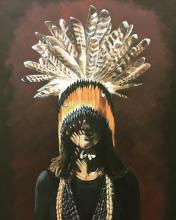 “Restoring Balance to the Force” - Tiffany Adams
“Restoring Balance to the Force” - Tiffany Adams
Reimagining Stories from the Gold Rush
Thursday March 18th, 2021, 5:10-6:30PM PST via Zoom Webinar
“Reimagining Stories from the Gold Rush” will look at how we tell stories from the Gold Rush, whose stories count, and how we can shape the future by diversifying those stories from the past. Panelists include: Veronica Kandl, Curator at the Center for Sacramento History; Lorena Marquez, Assistant Professor of Chicana/Chicano Studies at UC Davis; Brittani Orona, doctoral student in Native American Studies, UC Davis, and Tribal Affairs Coordinator for State Parks; artists Tiffany Adams and Xico González; and Cecilia Tsu, Associate Professor, Department of History, UC Davis.
This event has passed. Watch it on our YouTube Channel here: https://youtu.be/b9c4AD5j9so
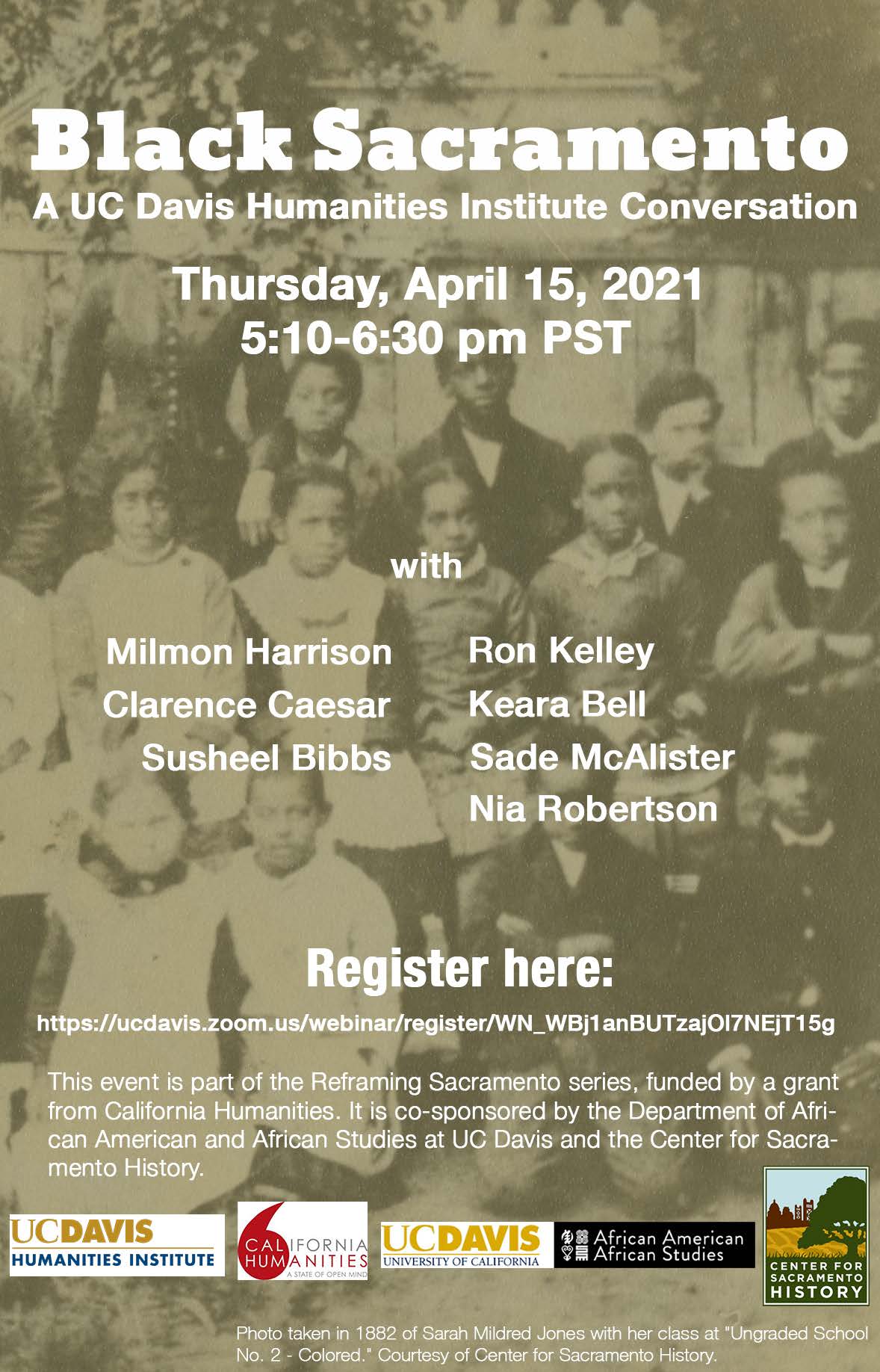
Black Sacramento
Thursday April 15th, 2021, 5:10-6:30PM PST via Zoom Webinar
In "Black Sacramento” UC Davis Professor of African American and African Studies and Center for Sacramento History Community Advisory Committee member Milmon F. Harrison will lead a discussion of his Black California oral history project and the significance of the Black presence in Sacramento historically and today. Harrison will be joined by a group of his students, along with Clarence Ceasar, retired Historian, California State Office of Historic Preservation, California State Parks; filmmaker Susheel Bibbs; and Ron Kelley, Owner and Operator of R. Kelley Farms.
This event has passed. Watch it on our YouTube Channel here: https://youtu.be/Gt1wIcOjmtM
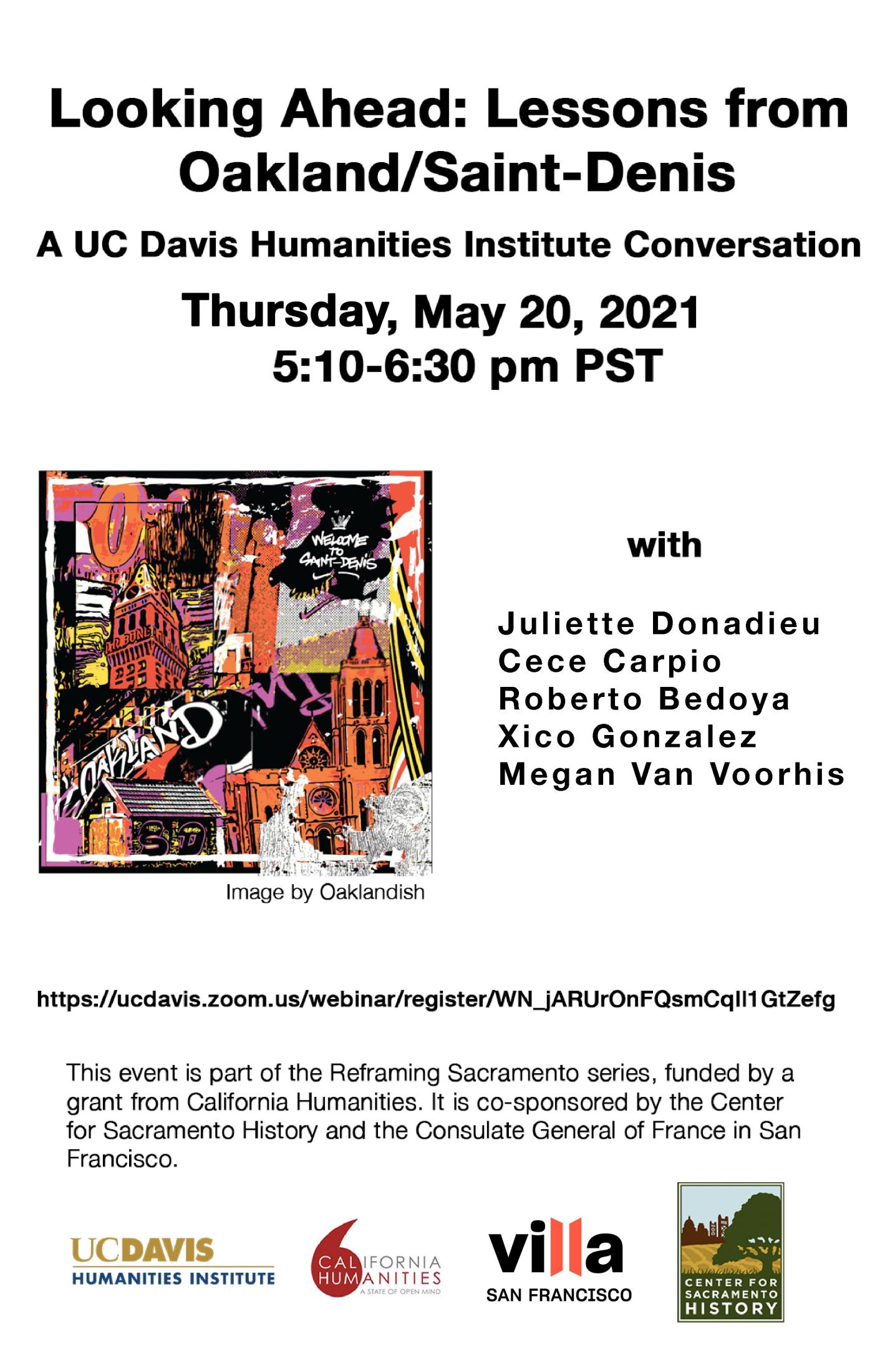
Looking Ahead: Lessons from Oakland/Saint-Denis
Thursday May 20th, 2021, 5:10-6:30PM PST via Zoom Webinar
“Looking Ahead: Lessons from Oakland/Saint-Denis” will bring artists and city government representatives from the Oakland/Saint-Denis cooperation project together with Sacramento artists and representatives. What can Sacramento learn from the Oakland/ Saint-Denis project, with its emphasis on cultural equity and diversity, and its collaborations between immigrant and community groups, artist collectives, urban planners, and mayors? What kinds of collaborations exist among key constituencies in Sacramento, and what can be imagined for the future? This panel both marks the culmination of the spring series and a transition to a longer term set of conversations, working groups, and public programs around Sacramento that the DHI seeks to sponsor and support.
This event has passed. Watch it on our YouTube Channel here: https://youtu.be/sqw7g3TyZQE
California Humanities, a nonprofit partner of the National Endowment for the Humanities, promotes the humanities—focused on ideas, conversation, and learning—as relevant, meaningful ways to understand the human condition and connect people to each other in order to help strengthen California. California Humanities has provided grants and programs across the state since 1975. To learn more, visit calhum.org, or like and follow California Humanities on Facebook, Twitter, and Instagram.
The Humanities For All Quick Grant is a competitive grant program of California Humanities that supports locally-initiated public humanities projects that respond to the needs and interests of Californians, encourage greater public participation in humanities programming, particularly by new and/or underserved audiences, and promotes understanding and empathy among all our state’s peoples in order to cultivate a thriving democracy.
Read the Humanities For All Quick Grants Press Release.
The Center for Sacramento History is a historical research center for the Sacramento region and maintains artifact, archival, photographic, and audiovisual collections, making them available for study and exhibition to the public. It the official repository for the archival records of the City and County of Sacramento and maintains privately donated artifacts, manuscripts and personal papers from individuals, businesses, and organizations in the community.
The Oakland / Saint-Denis Cooperation Project has brought together cultural and urban leaders in both cities – Oakland, California and Saint-Denis, France – to compare innovations, promote international and interdisciplinary dialogue, and amplify the role of the cultural sector in urban development. Both cities have deeply rooted artistic communities that can play an increasingly critical and catalyzing role in creating more inclusive and equitable cities. This partnership includes the French American Cultural Society and the Institut Français, Paris in collaboration with Légendes Urbaines.
Democracy in Crisis, Democracy in Movement(s)
A DHI Conversation Series - Fall 2020
The Democracy in Crisis, Democracy in Movement(s) fall Conversation series looks at contemporary crises in democracy globally and at social justice movements that have thrown new demands at democratic principles and practices. In Women, Voting, and US Empire, Faith Bennett, Katherine Marino, Lisa Matterson, and Judy Tzu-Chun Wu address the mixed legacy of women’s suffrage and ask what voting rights look like in the context of US empire. In Democratic Movements in Times of Crisis, Michael Hardt asks what it means for social movements to claim the mantle of democracy at a time when conventional conceptions of democracy seem ever more tenuous and the institutions that support them ever weaker. In Democracy in Crisis? Wendy Brown and James Vernon ask, among other questions, whether democracies founded in racial subjugation are capable of extirpating the effects of these foundings, and whether neoliberalized capitalism and financialization can be reconciled with democratic governing and public interests. Join the DHI for these timely and urgent discussions on the past, present, and future of democratic practices, principles, and movements in the world today.
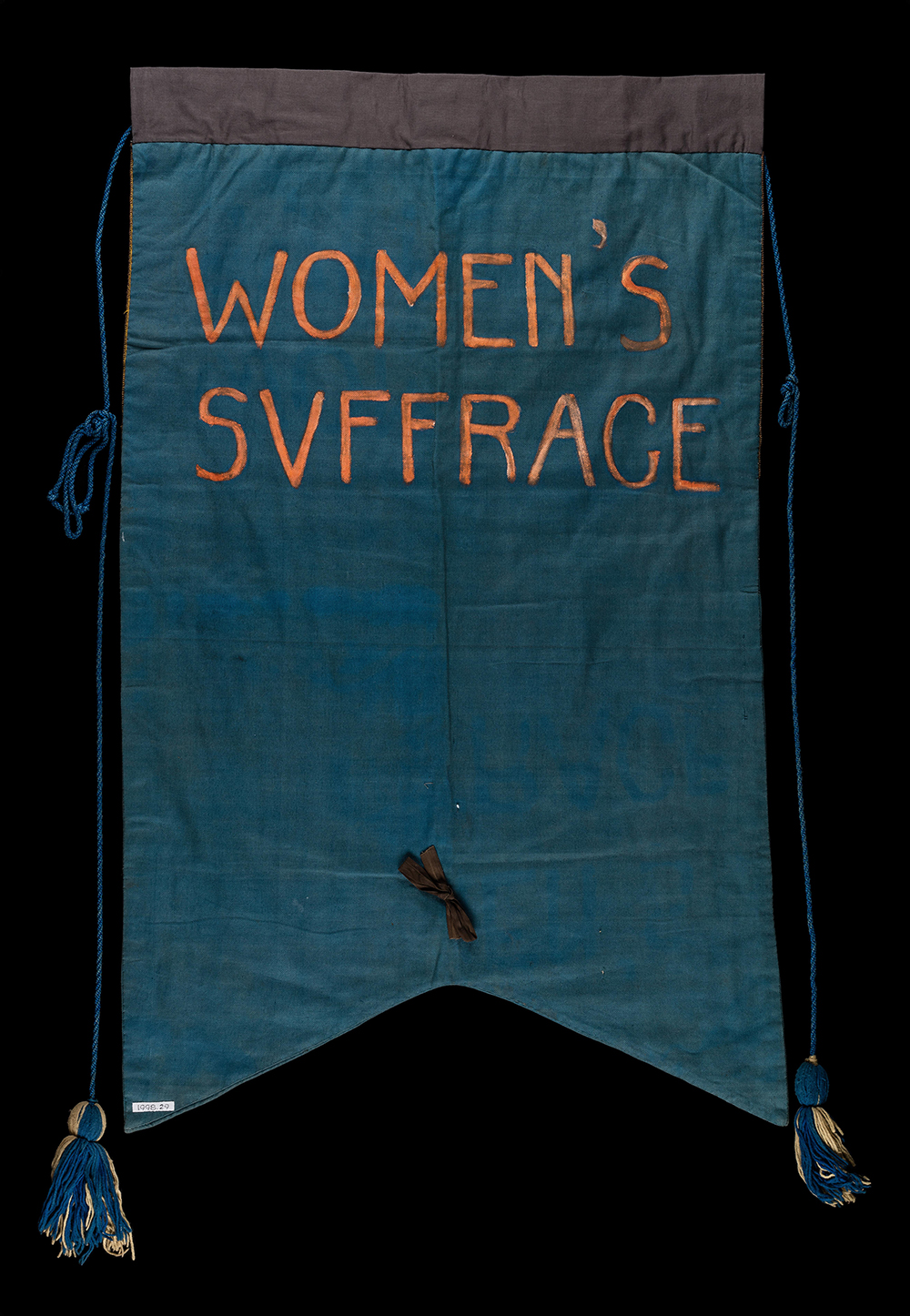
Women, Voting, and U.S. Empire
October 7th, 2020, 5:10-6:30PM PST
Online
This is the first in a three-part fall conversation series: Democracy in Crisis, Democracy in Movement(s)
What do voting rights look like in the context of U.S. empire? The year 2020 marks the centennial celebration for the passage of U.S. women’s suffrage. Long celebrated as a victory for “American women,” this attainment of the federal right to vote left mixed legacies, given the ongoing history of settler colonialism and differential gradations of citizenship based on gender, sexuality, race, immigration, and class. Roundtable participants will discuss how their research explores these mixed legacies, as well as their collaborative work toward bringing this history to public humanities and history curricula.
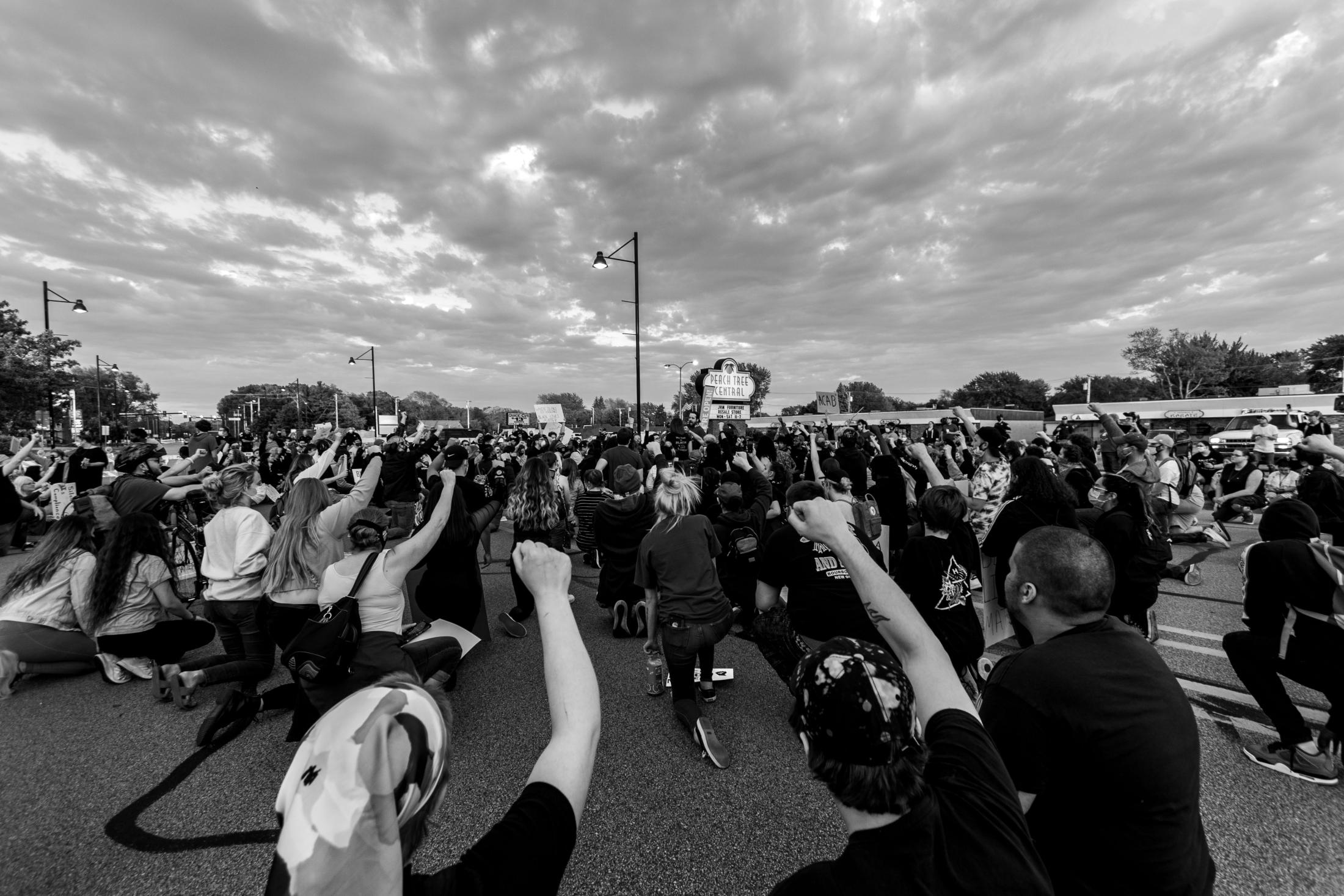
Democratic Movements in Times of Crisis
October 22nd, 2020, 4:30-6:00PM PST
Online
This is the second in a three-part fall conversation series: Democracy in Crisis, Democracy in Movement(s)
“This is what democracy looks like” has been for decades a frequent chant at demonstrations. Throughout the world, the demand for a new democracy has been at the center of a wide range of social movements, from the “indignados” of Spain and Greece to the “Be water” protests in Hong Kong, and from the Arab Spring struggles in Tunisia and Egypt, to the continuing Black Lives Matter struggles in the US. At issue is both the democratic organization internal to the movement, which often takes horizontal form, and the vision of a democratic society beyond the movement. At a time when conventional conceptions of democracy seem ever more tenuous and the institutions that support them ever weaker, when even in the United States serious doubts are raised about the rule of law and the electoral process, what does it mean for social movements to claim the mantle of democracy? And what kind of democracy do they enact and evoke? Michael Hardt and Katharine Wallerstein will discuss the question of democracy in social movements in an international frame.
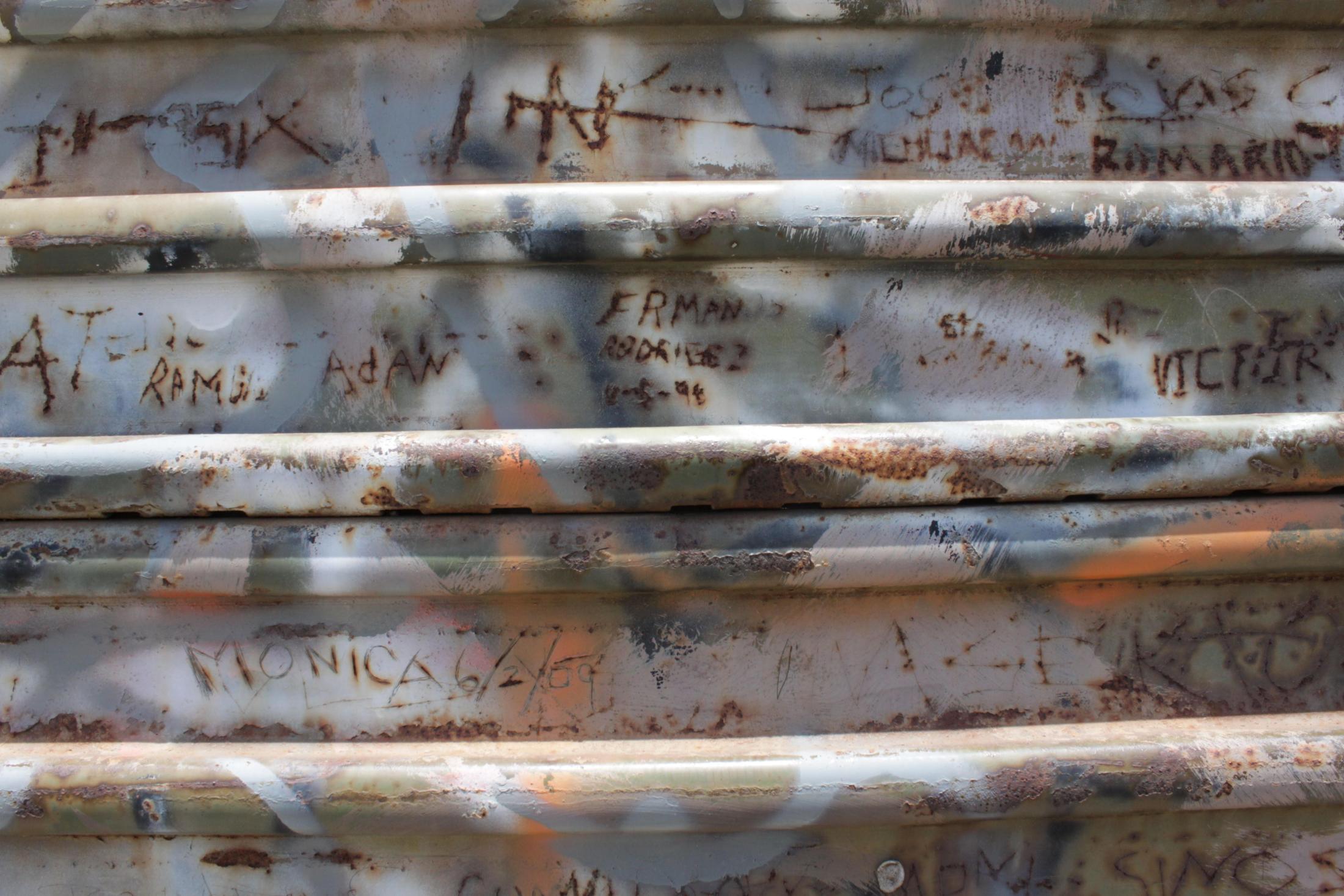
Democracy in Crisis?
October 29th, 2020, 5:10-6:30PM PST
Online
This is the third in a three-part fall conversation series: Democracy in Crisis, Democracy in Movement(s)
Electoral and constitutional democracy, always a promise only half-filled, is facing obvious challenges in the US today: a current president who attacks both, a citizenry largely disgusted by politics, a deeply politicized court, polarized legislative bodies, and corruption by corporate and other wealthy interests running through almost every institution. There are slightly less obvious but no less potent challenges: Are democracies founded in racial subjugation (slavery and colonialism) capable of extirpating the effects of these foundings? Can neoliberalized capitalism and financialization be reconciled with democratic governing and public interests? Can the climate crisis be met through democratic powers? How does a world of migrants and refugees co-exist with democracies bound by nation-states? Have the erosion of public education and commercialized social media platforms overwhelmed the integrity of democratic processes and deliberation? Professors Vernon and Brown, who are part of a teaching team for a fall 2020 undergraduate course on Crises of Democracy, will converse with one another about these topics.

The Minneapolis Uprising: Abolition and the Struggle for a Police-free City
July 23, 2020, 4:00-5:30PM PST
Online
In the six weeks since the murder of George Floyd, collective outrage over systemic, racist police brutality has turned the city of Minneapolis into ground zero for abolitionist struggle. Over the course of a week, a multi-racial coalition of Minneapolis organizers and residents set up community defense units and citizen fire squads, built mutual aid networks and outdoor kitchens, occupied a hotel and moved in 200 unhoused residents, and convinced the city council to pledge the defunding and abolition of the Minneapolis Police Department. In this panel, organizers from Minneapolis will talk about the decades of multi-racial and Black-led organizing that has led to these victories, reflect on the lessons and promises of the Minneapolis uprising, and discuss the path forward for abolitionist and Black liberation struggles in the US and globally.
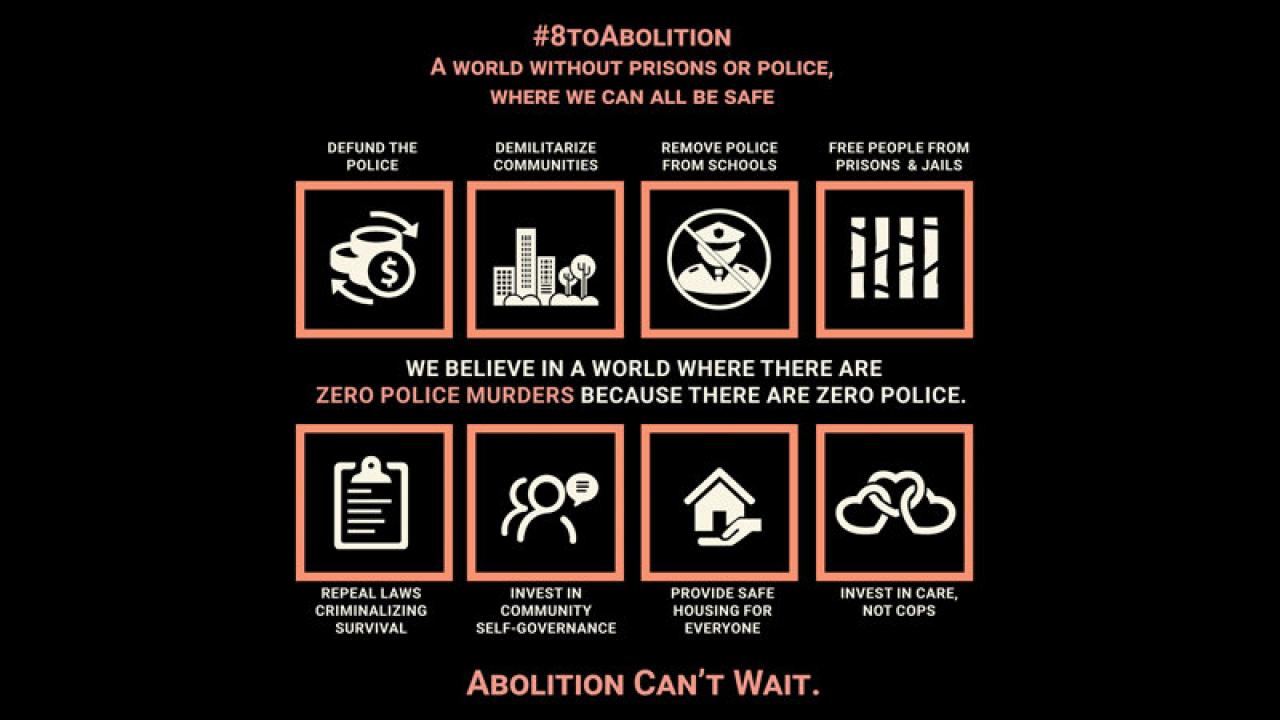
400 Years of Resistance: Race, Policing, and Abolition
July 2, 2020, 4:00-5:30PM PST
Online
Americans are on the edge. Amid deepening economic austerity and the expansion of carceral technologies, the U.S. government’s manipulation of the COVID-19 crisis has deepened the fault-lines of racialized valuation and the population’s differential exposure to mortality. Astonishingly, the convergence of the health crisis and the visual mediation of antiblack policing in the U.S. has created the conditions for mass revolt. In this conversation, scholar-activists Andrea Boyles, Ofelia Cuevas, and Erin Gray discuss the resurgence of Black movements against policing since the May 25 killing of George Floyd. Drawing on their research on racialized state violence, Professors Boyles, Cuevas, and Gray will discuss the structural relationship between enslavement, policing, and racialization; root current calls to abolish police in the 400+ years movement to end slavery; and contemplate what forms of solidarity and sustainability are necessary to defend Black lives and protect the current upswell of revolutionary energy from the forces of co-optation.
